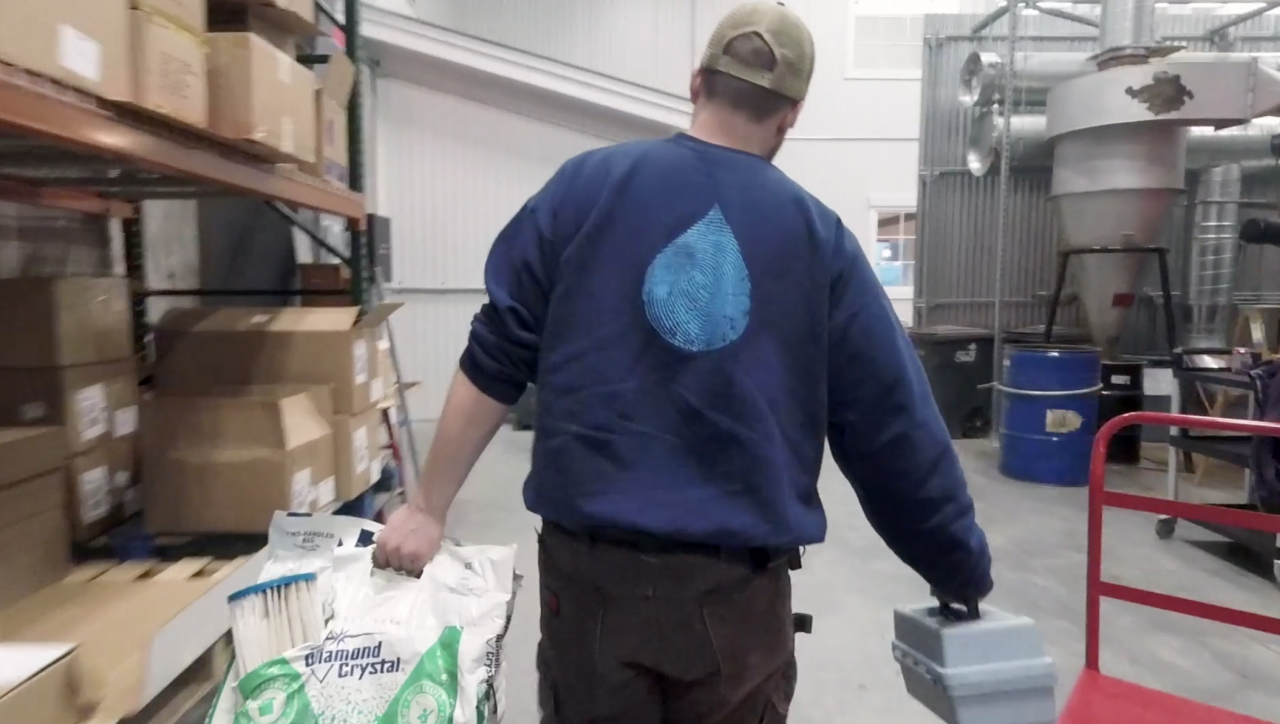Can Water Quality Affect Your Coffee? Yes—Here’s How

For many Vermonters, mornings begin with the comforting aroma of fresh coffee. Whether you savor a French press on the porch in Stowe, grab a quick drip before work in Burlington, or brew a delicate pour-over on a quiet weekend, coffee is more than a drink—it’s a ritual. Yet even the most expensive beans and brewing equipment can’t deliver their full potential if the water quality isn’t right.
At Clear Water Filtration, we remind families and businesses alike that coffee is about 98% water. That means what flows from your tap is just as important as what you scoop from the bag. While most people focus on roast, grind size, and brewing method, it’s often the water that makes the biggest difference between a flat, bitter cup and one that’s smooth, balanced, and delicious.
Why Water Quality Matters for Coffee Flavor
Brewing coffee is essentially an extraction process: hot water dissolves flavorful compounds from the coffee grounds. But if the water itself contains unwanted elements—like excess minerals, chlorine, or metals—those interact with the coffee in ways that can distort flavor.
Common Water-Related Coffee Issues:
- Hard Water (Calcium & Magnesium): Can make coffee taste bitter or chalky. It also interferes with extraction, causing underdeveloped flavors.
- Chlorine & Chloramine: Used in municipal water, they can give coffee a chemical or medicinal aftertaste.
- Iron & Manganese: Found in many Vermont wells, these minerals add a metallic tang that overwhelms delicate flavors.
- Imbalanced pH: Coffee brewing is most successful at a neutral to slightly acidic pH.
The Specialty Coffee Association sets standards for brewing, recommending total hardness between 50–175 ppm and pH around 7. If your water doesn’t fall within these ranges, you’re likely not tasting the coffee as the roaster intended. Homeowners struggling with scaling or poor taste often discover the culprit is hard water.
Vermont Water and Its Unique Coffee Challenges
Vermont is known for its clean water, but local variations can make brewing tricky. Municipal systems in Chittenden and Washington counties often contain chlorine to meet safety standards, while rural areas like Addison or Rutland depend on wells that may have iron, sulfur, or manganese.
Regional Coffee Concerns:
- Burlington & Montpelier: Chlorine treatment can leave a noticeable aftertaste in brewed coffee.
- Addison & Rutland Counties: Private wells often show iron or manganese, creating metallic notes.
- Caledonia & Windsor: Hard water contributes to scaling in espresso machines and alters flavor balance.
This variability explains why one day your coffee may taste vibrant and the next it feels flat. Installing a residential water filtration system stabilizes water chemistry, giving you consistent results cup after cup.
The Science of Brewing with the Right Water
When hot water passes through coffee grounds, it extracts three types of compounds: acids, sugars, and bitter elements. The goal is balance—enough acidity for brightness, enough sweetness for body, and minimal bitterness.
- With hard water, calcium bonds with acids, muting brightness. Your coffee tastes dull.
- With chlorine, chemical reactions create harsh flavors that overwhelm delicate notes.
- With soft, balanced water, sugars and aromatics extract cleanly, delivering a smooth, complex cup.
Think of water as the conductor of an orchestra: if it’s off-key, the entire performance suffers. When water is balanced and clean, every note from the coffee bean comes through clearly.
Filtration Options for Better Coffee at Home
Improving your coffee doesn’t require changing beans—it often just requires changing your water.
Household Filtration Solutions:
- Carbon Filters: Remove chlorine and organic compounds that give coffee off-flavors.
- Water Softeners: Balance hardness, reducing bitterness while protecting machines from scale.
- Reverse Osmosis (RO): Creates near-pure water. Some RO systems include mineral cartridges to add back the ideal balance for coffee.
- Under-Sink Filters: Perfect for kitchens where coffee, tea, and cooking are daily rituals.
For coffee lovers, the most effective setup is often a reverse osmosis system paired with a remineralization cartridge. The Kinetico K5 RO Drinking Water System is a popular choice for homeowners seeking barista-quality brewing water.
For Vermont Cafés and Coffee Shops
Local coffee shops are just as dependent on water quality as home brewers—if not more. With customers expecting premium taste, consistency is non-negotiable. Many Vermont cafés have invested in brewery and cidery water filtration systems designed to create stable water profiles year-round.
Investing in water quality builds customer loyalty, protects high-value equipment, and ensures every latte or pour-over reflects the quality of Vermont’s vibrant coffee culture.
A Better Cup Starts with Better Water
Your morning coffee is more than a beverage—it’s a ritual that deserves to be enjoyed at its best. While great beans and equipment matter, it’s water that makes up almost every sip. By addressing water quality, you can transform an average cup into a café-worthy experience right at home.
Clear Water Filtration proudly helps Vermont families and coffee shops brew better every day. Whether you’re perfecting a pour-over in your kitchen or pulling espresso shots for a line of customers, remember this: great coffee starts with great water.
Ready to upgrade your coffee experience? Contact Clear Water Filtration today.
Service Locations:
Vermont: Washington, Lamoille, Addison, Orleans County, Caledonia, Chittenden, Essex, Franklin, Grand Isle, Orange, Rutland, Windham, Windsor